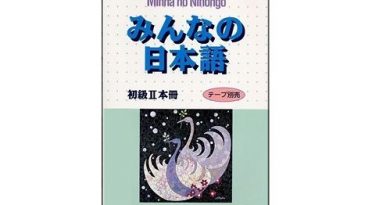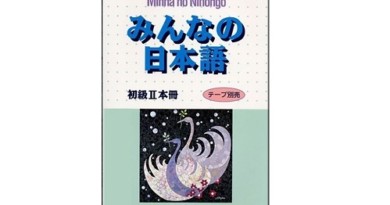Contents
- 1 Learn minna no nihongo lesson 20
- 1.1 6. Mondai
- 1.1.1 Exercise 1: Listen and answer questions
- 1.1.2 Exercise 2: Listen and choose true or false
- 1.1.3 Exercise 3: Give the true form of the verbs in the table below
- 1.1.4 Exercise 4: Give the plain form (普通形) of the underlined words
- 1.1.5 Exercise 5: Give the polite form (丁寧形) of the underlined words
- 1.1.6 Exercise 6 : Read the following paragraph and choose true or false
- 1.1 6. Mondai
Learn minna no nihongo lesson 20
6. Mondai
To do the “Mondai” section, you need “minna no nihongo” book and audios for listening
Exercise 1: Listen and answer questions
With this exercise, you will hear the questions and answer. When listening, stop for 30 seconds to 1 minute in each sentence to write the answer. With the questions that you don’t hear clearly, listen them the second time. After listening 1 or 2 times to answer the question, you can listen again to hear each word clearly and copy it to improve your listening skill and remember words better.
1.
2.
3.
4.
5.
Exercise 2: Listen and choose true or false
With this exercise, the listeners will listen to the conversation, then there will be a key point about the problem that will be raised in the conversation. The listeners must choose whether the content is true or false according to what they has listened. If it is true, select 〇 (maru) and if it is false, choose ✖ (batsu). In this listening section, you should pay attention to the concluding sentence to see whether that sentence is given in a positive or negative form in order to avoid being “tricked” when listening.
1.
女:あっ、雨!
(Ah, it’s raining!)
男:えっ?傘、持ってる?
(Eh? Do you have umbrella?)
女:ううん。田中さんは?
(No, What about Mr. Tanaka?)
男:僕も持ってない。
(I don’t either.)
2人は傘を持っていません。(The two people don’t have umbrella.)
Answer: (O)
2.
男:きのう、初めて金閣寺へ行ったよ。行ったことある?
(Yesterday, I went to Kinkakuji for the first time. Have you ever been there?)
女:ううん、一度もない。どうだった?
(No, not once. How was it?)
男:きれいだったよ。また行きたい。
(It was beautiful. I want to go there again.)
女:じゃ、来月いっしょに行かない?
(Well, shall we go together next month?)
男:うん、いいね。
(Yeah, how nice.)
男の人と女の人はいっしょに金閣寺へ行きました。(The man and the woman went to Kinkakuji together.)
Answer (X)
3.
女:あしたの晩、暇?韓国の映画の切符を2枚もらったけど、見に行かない?
(Are you free tomorrow night? I received 2 Korean movie tickets, shall we go to see movie?)
男:いいね。どこで会う?
(How nice. Where shall we meet?)
女:そうね6時に梅田駅。
(6 o’clock at the Umada Station.)
男:わかった。じゃ、またあした。
(I got it. Well, see you tomorrow.)
2人はあした6時に会います。(The two people will meet at 6 o’clock tomorrow.)
Answer: (O)
4.
男:あしたうちへ遊びに来ない?
(Would you like to come to my place tomorrow?)
女:行きたいけど、用事があるから。
(I want to but I have things to do.)
男:そう、じゃ、また今度。
(Is that so, well, maybe next time.)
5.
男:中村さん、趣味は?
(Naramuka, what is your hobby?)
女:スポーツよ。テニス、ゴルフ、スキー。
(My hobby is playing sports such as tennis, golf, ski, etc.)
男:僕もスポーツが好きだけど、忙しいから・・・。テレビのスポーツはよく見るけど。
(I like playing sports too but I’m very busy…. But I often watch sports on TV.)
女:ふーん。
(Yeah.)
男の人はよくスポーツをします。(The man often plays sports.)
Answer: (X)
Exercise 3: Give the true form of the verbs in the table below
| 例: | 行きます | 行く | 行かない | 行った | 行かなかった |
| 1 | 泳ぎます | 泳ぐ | 泳がない | 泳いだ | 泳がなかった |
| 2 | 貸します | 貸す | 貸さない | 貸した | 貸さなかった |
| 3 | 待ちます | 待つ | 待たない | 待った | 待たなかった |
| 4 | 遊びます | 遊ぶ | 遊ばない | 遊んだ | 遊ばなかった |
| 5 | 飲みます | 飲む | 飲まない | 飲んだ | 飲まなかった |
| 6 | あります | ある | ない | あった | なかった |
| 7 | 買います | 買う | 買わない | 買った | 買わなかった |
| 8 | 寝ます | 寝る | 寝ない | 寝た | 寝なかった |
| 9 | 借ります | 借りる | 借りない | 借りた | 借りなかった |
| 10 | します | する | しない | した | しなかった |
| 11 | 来ます | 来る | 来ない | 来た | 来なかった |
| 12 | 寒いです | 寒い | 寒く ない | 寒かった | 寒く なかった |
| 13 | いいです | いい | よく ない | よかった | よく なかった |
| 14 | 暇です | 暇だ | 暇じゃ ない | 暇だった | 暇じゃ なかった |
| 15 | 天気です | 天気だ | 天気じゃ ない | 天気だった | 天気じゃ なかった |
Exercise 4: Give the plain form (普通形) of the underlined words
1. きのう家族に電話を(かけましたか。)
2. わたしは大阪に(住んでいます。)
3. もう(帰ってもいいですか。)
4. 東京へ(遊びに行きます。)
5. ビザを(もらわなければなりません。)
Exercise 5: Give the polite form (丁寧形) of the underlined words
1.
あの人は(もう結婚している?)
……(ううん、独身だ。)
2.
きのう(パーティーに行った?)
……(ううん、行かなかった。)
(頭が痛かったから。)
3.
ミラーさん、いつも(元気ね。)
……(うん、若いから。)
Exercise 6 : Read the following paragraph and choose true or false
Translation:
1. ( 〇 )
2.( 〇 )
3.( ✖ )
4.( 〇 )
Above is instruction to Learn minna no nihongo lesson 20. See other lessons in category : learn Japanese with minna no nihongo or: Japanese for beginers.

